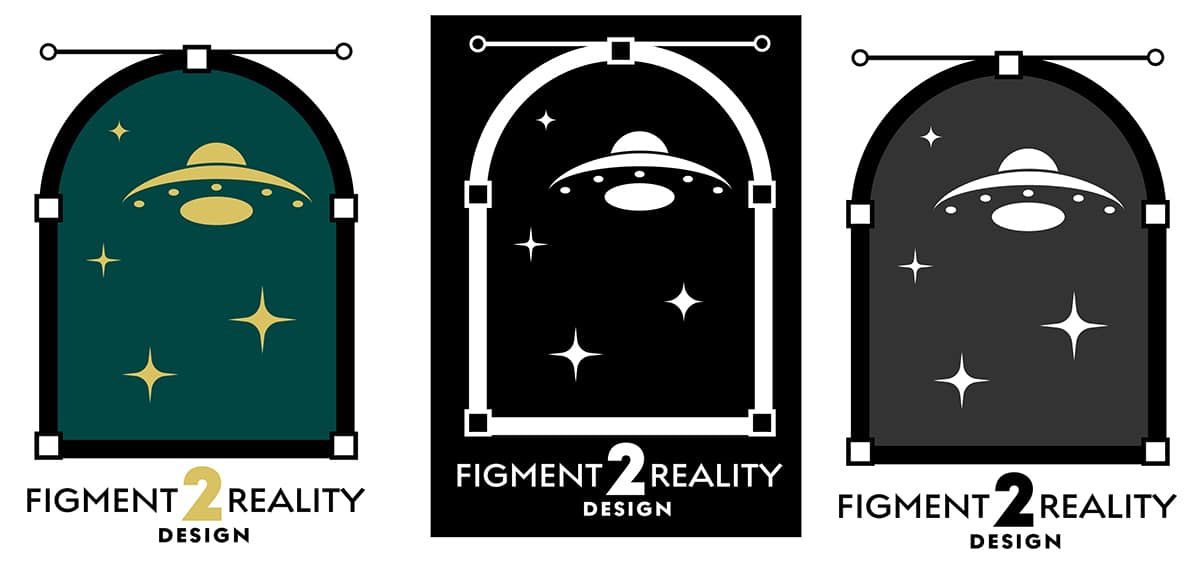DES 232: Logo Design II
Portfolio projects in identity design
In the words of the late, great Paul Rand, logos should be like flags: universal, timeless, and durable. Do you have the skills to create identities that endure? Find out, in this advanced online logo design course. Working with an expert instructor, you'll study important identity design concepts including corporate identity, image, branding, and repositioning. The focus will be on learning how to approach each stage of the logo design process, from concept to execution and client presentation.
About This Course
Project-Based Learning
Round out your design portfolio with challenging logo design projects: music industry, airline branding, movie studio, and personal branding.
What Skills Will I Develop?
Students in this course can expect to learn to:
- Develop an understanding of how logo design evolved from early logo marks to the icons of today's consumer society.
- Create three distinct logos in black and white for a record label.
- Develop an understanding of the influences of corporate identity, image, and branding on a logo design.
- Develop a brand design including an overall brand, logo, and identity for an airline.
- Develop strategies and techniques for brainstorming creative logo ideas.
- Create two visual identity marks for a major sports event at a city.
- Understand and express the fundamental properties of successful logos.
- Create three distinct logos, a brief, and a criteria matrix for a movie studio.
- Learn techniques for the contraction phase of a logo design project and for working with clients.
- Create a branding statement and three visual identities for a designer or design agency.
- Learn approaches for the finalization and presentation phase of logo design.
- Finalize a visual identity for a designer or design agency and develop visual mockups of the logo's application.
What Software and Supplies Do I Need?
- Computer with Internet connection.
- Adobe Illustrator or equivalent program.
- Basic experience in the above software.
Course Instructor(s)
The course is taught by the following instructor(s):
 Dr. Tamara Pavlock
Dr. Tamara Pavlock
Dr. Tamara Pavlock is dedicated to inspiring learning, art and creative thinking, and student success. Tamara has over 20 years of experience as an Art, Graphic Design and Education Instructor, Higher Education Department Director and Associate Dean, Creative Director, Print and Production Specialist.
Course Outline
Visual Communication
What makes a logo work? We will begin by examining a personal vision for visual communication. Successful logos achieve a tradeoff between flexibility (appearing anywhere, at any size) and communication. To build a conceptual foundation, you'll look at the purpose of logo design from ancient times to today's consumer society, exploring the fundamental properties of a successful logo and have an overview of the logo design process in a professional environment.
Identity, Image, and Branding
We're all familiar with the power of a major brand (Nike, anyone?). But designers often confuse the differences between corporate identity, image, and branding. This session clarifies the issues and focuses squarely on branding—the essence, character, and purpose of a company and its services. The process by which a company builds and extends or repositions a brand is explored, with reference to contrasting case studies.
Expansion and Evolution
This week, we will look at the critical first stage of any professional logo design process. You'll examine the logo expansion/evolution phase, in which you set up a client meeting to determine his or her needs, produce a creative brief, and brainstorm a range of options. Strategies for effective logo brainstorming are discussed, with an emphasis on opening the door to creativity and productivity.
Identity Imperatives
A successful logo conveys the essential identity of a company or individual— saying "I'm friendly" or "strong" or "smart." This session explores the various techniques logo designers use to create identity: spacing, color, shape, and letterform. You'll learn tricks of the trade to add impact and personality to your logo designs.
Contraction and Definition
This week, we will cover the second step in the logo design process: the contraction phase. After a second client meeting, the designer's options are generally narrowed to a few leading logo designs. Armed with client feedback, the designer focuses on honing the artwork, addressing such key issues as legibility, simplicity, and typography.
Finalization and Presentation
To become a successful logo designer, you must know how to pitch your work. This involves both presenting the logo effectively and handling client feedback in a professional manner that moves the project forward. We'll deal with these real-world issues: how to schedule and price logo projects, how to make client presentations, and how to give the client tools for measuring the project's success.
Frequently Asked Questions (FAQ)
How Do The Courses Work?
Our courses are project-based and instructor-led. In each course you’ll complete a series of lectures, projects, discussions, and critiques designed to stretch your creative skills. Weekly assignment deadlines keep you on track, and with no set-logins or Zoom meetings, you can build your studies around your schedule.
Who Are The Instructors?
Our courses are developed and taught by our industry-leading faculty of creative professionals. This means that you’ll learn in-demand skills, get feedback on your work, and build a portfolio of creative work. View our Student Gallery for featured student projects.
When Can I Start?
Classes start January, April, and August, and this course is completed in a 15-week term. College credit from this course can be applied to a range of Degree and Certificate programs at Sessions College. You can enroll in this course on an individual basis or as part of a program.
Explore our Programs: Bachelor's Degree | Associate Degree | Undergraduate Certificate
How Do I Register?
To register for a program, complete our program application. To register for this course on an individual basis, please contact our admissions team at admissions@sessions.edu. An Admissions Advisor will contact you to setup your enrollment.
| Course Tuition and Fees | |
|---|---|
| Tuition | $300/credit |
| Registration Fee* | $200 |
| Total Course Price | $1100 |
Registration fees are nonrefundable after 5 days from enrollment.
Is Sessions College Accredited?
Yes. Since 2001, Sessions College has been accredited by the Distance Education Accrediting Commission (DEAC). The Distance Education Accrediting Commission is listed by the U.S. Department of Education as a recognized accrediting agency and is recognized by the Council for Higher Education Accreditation (CHEA).






















